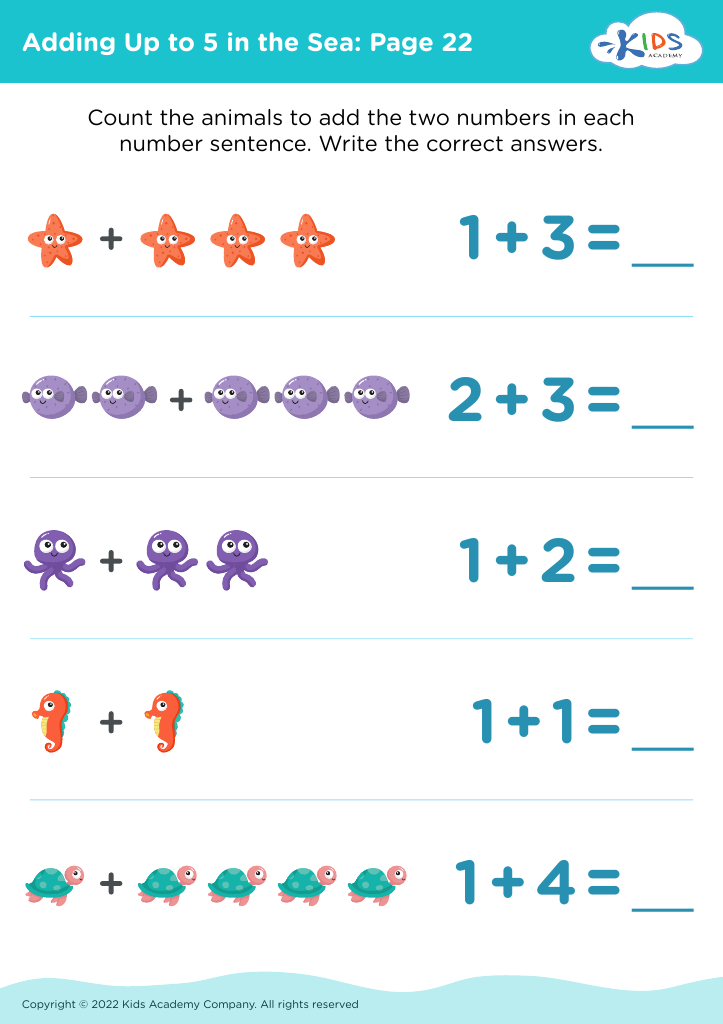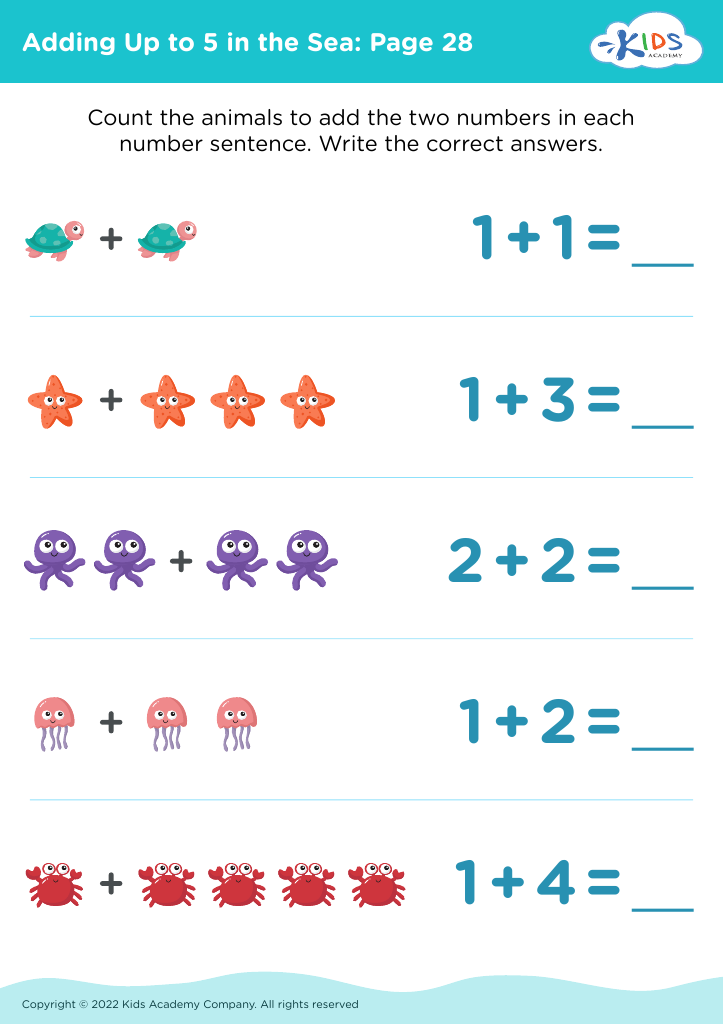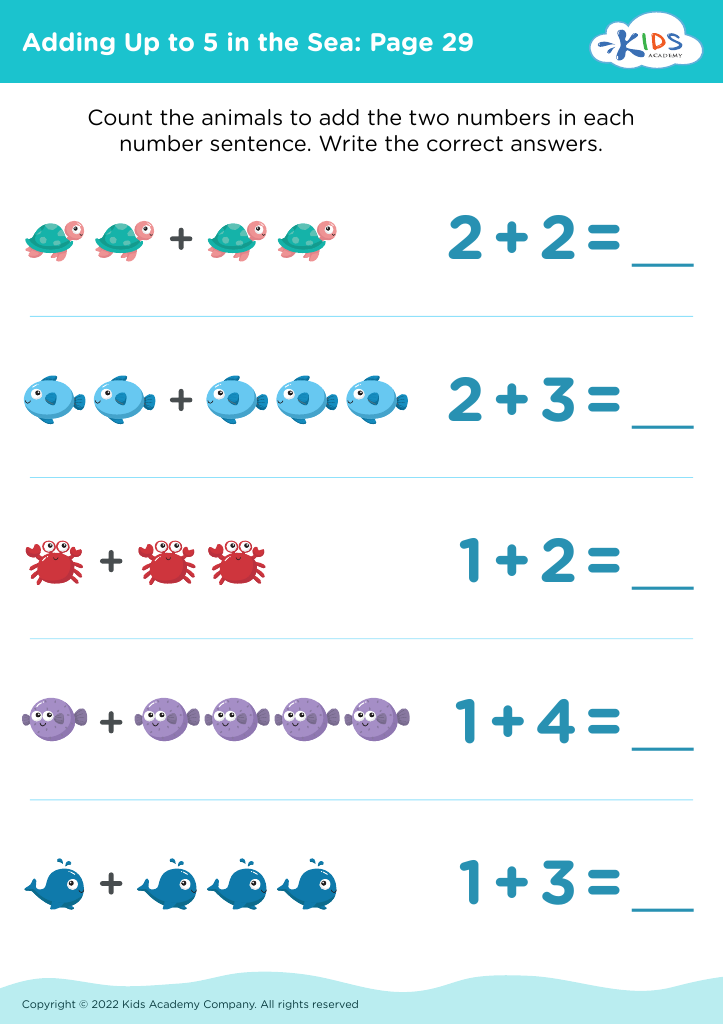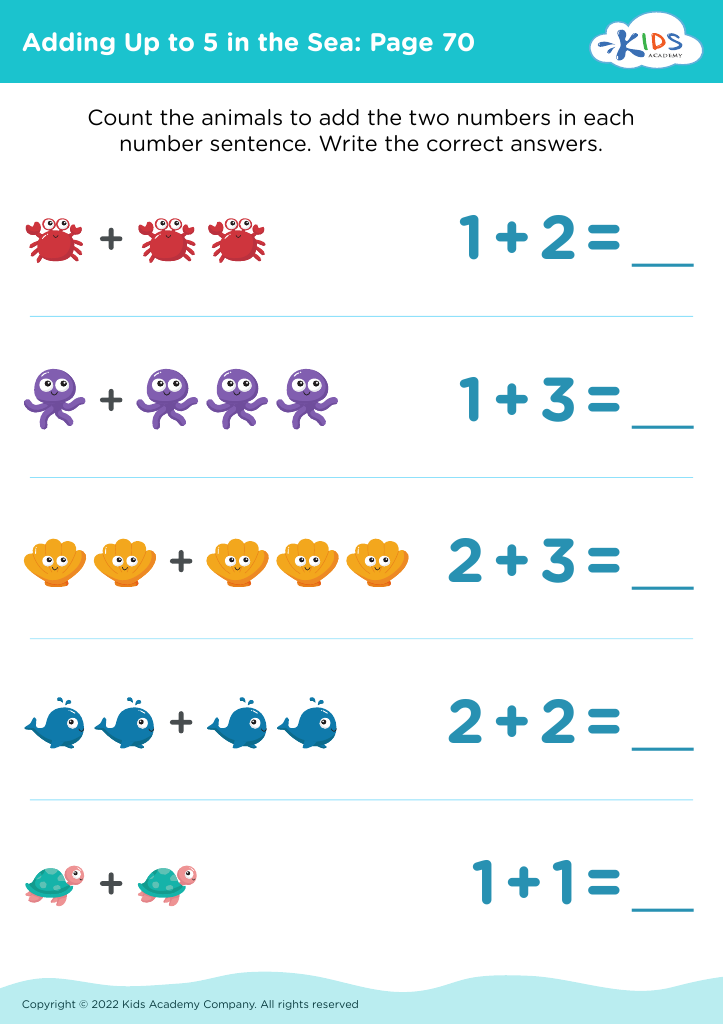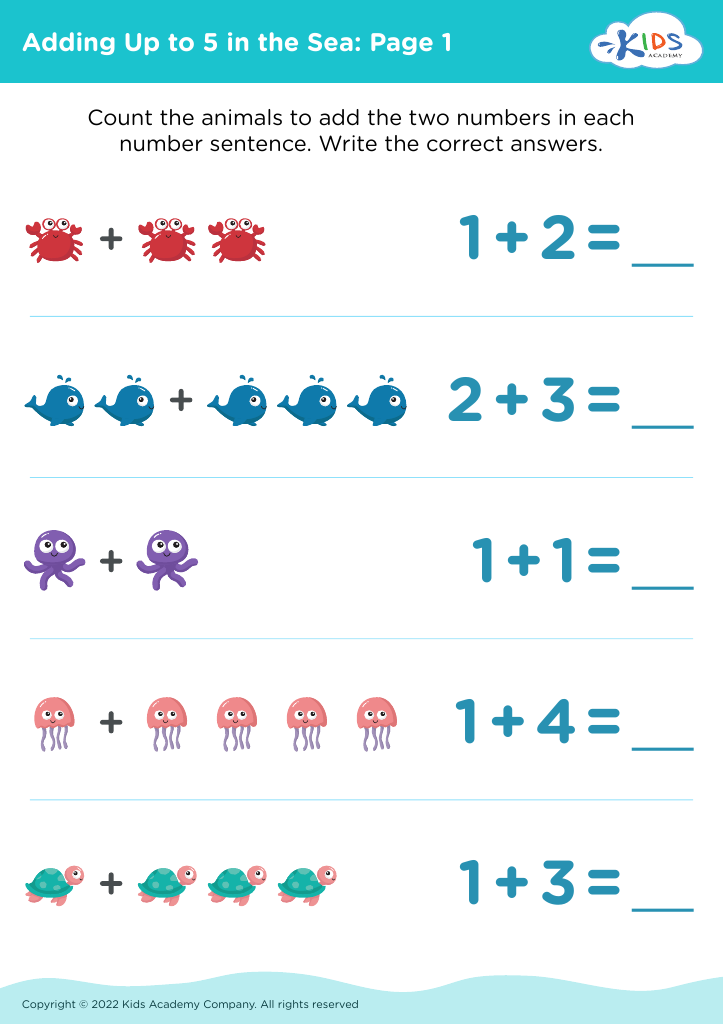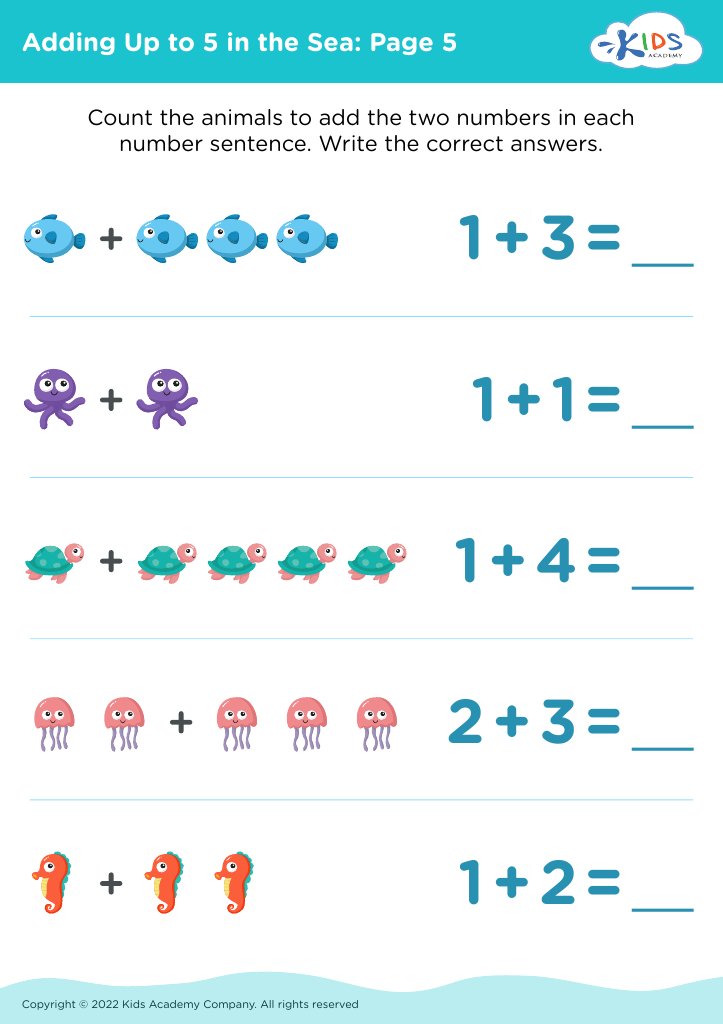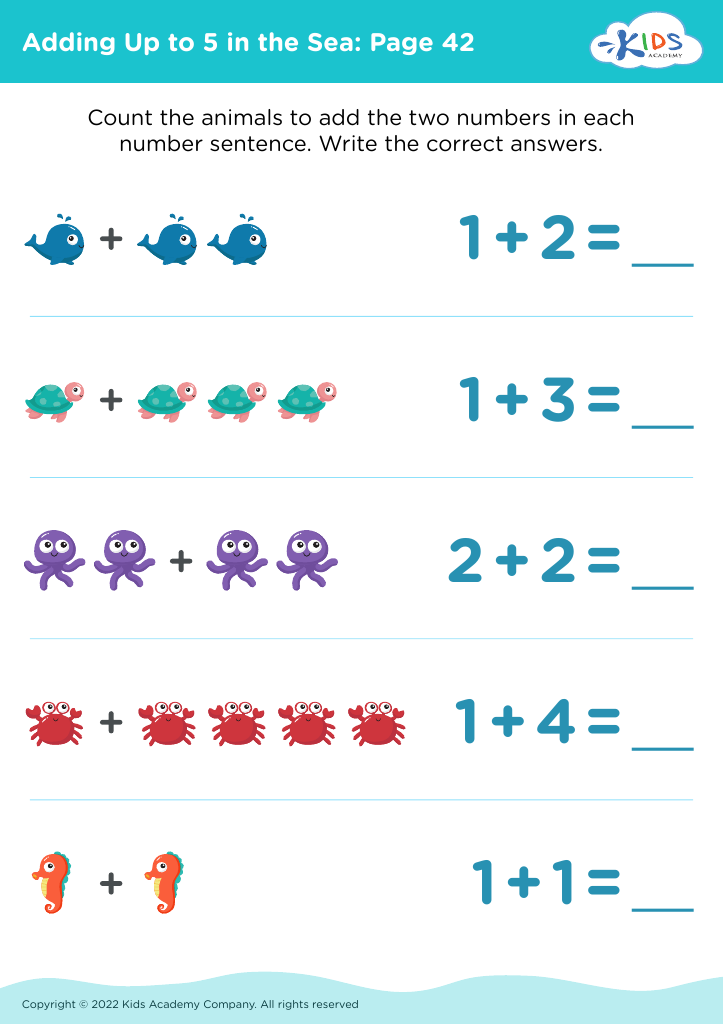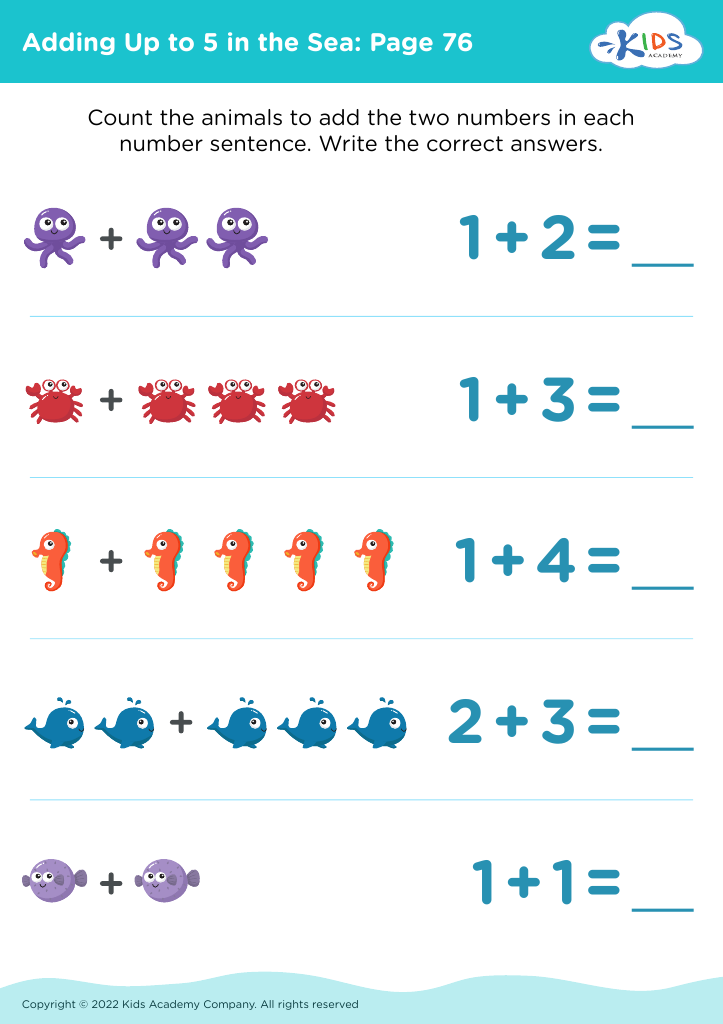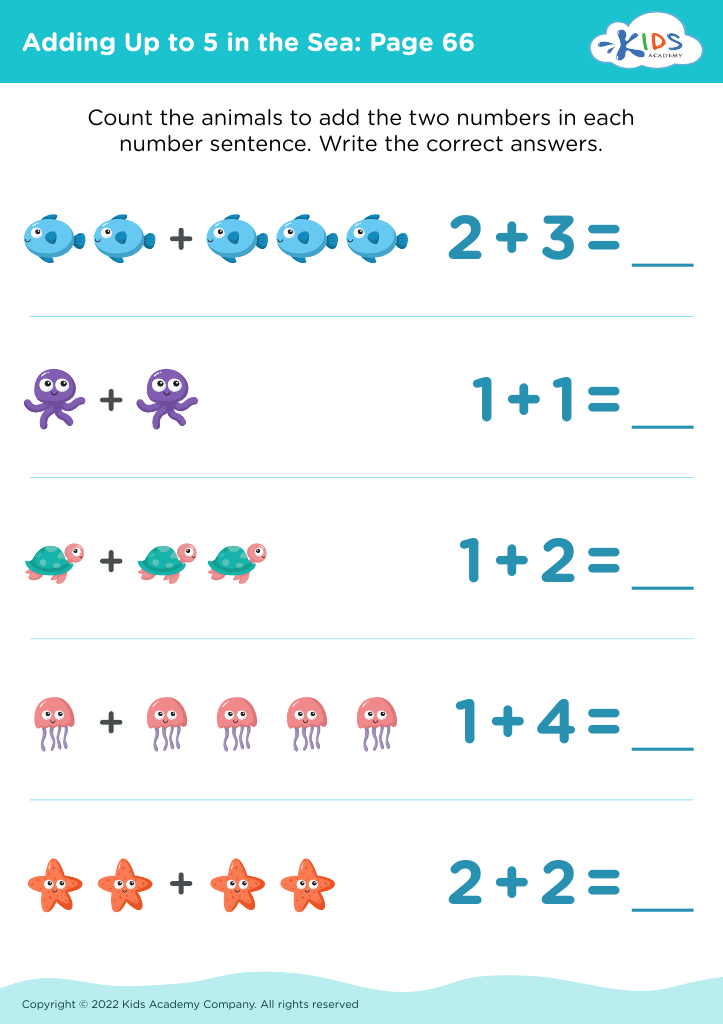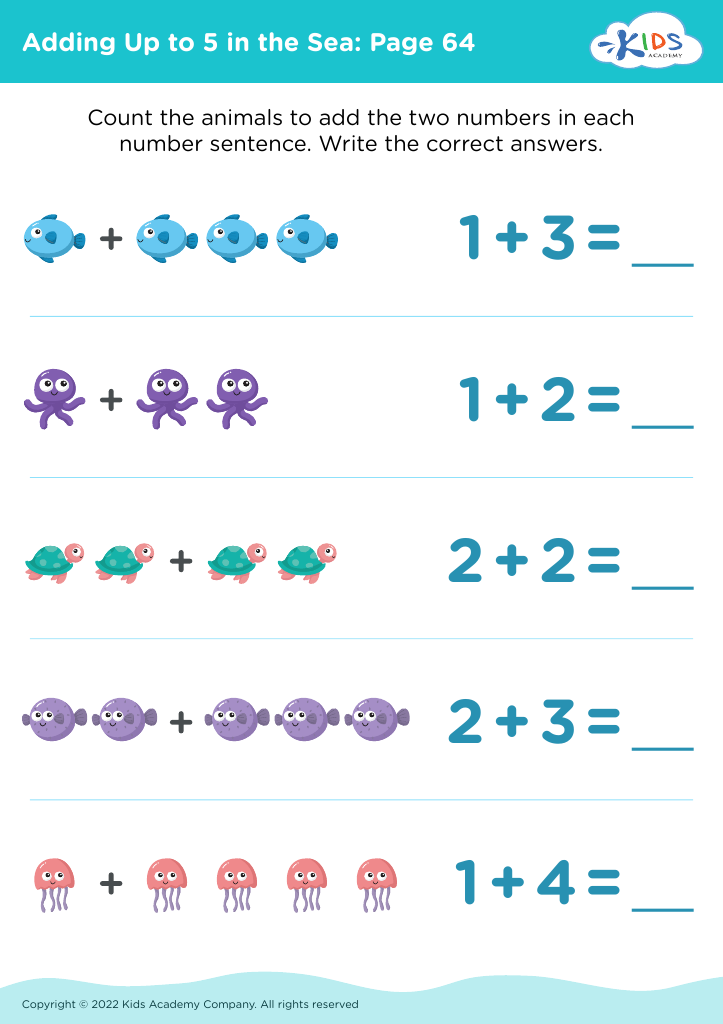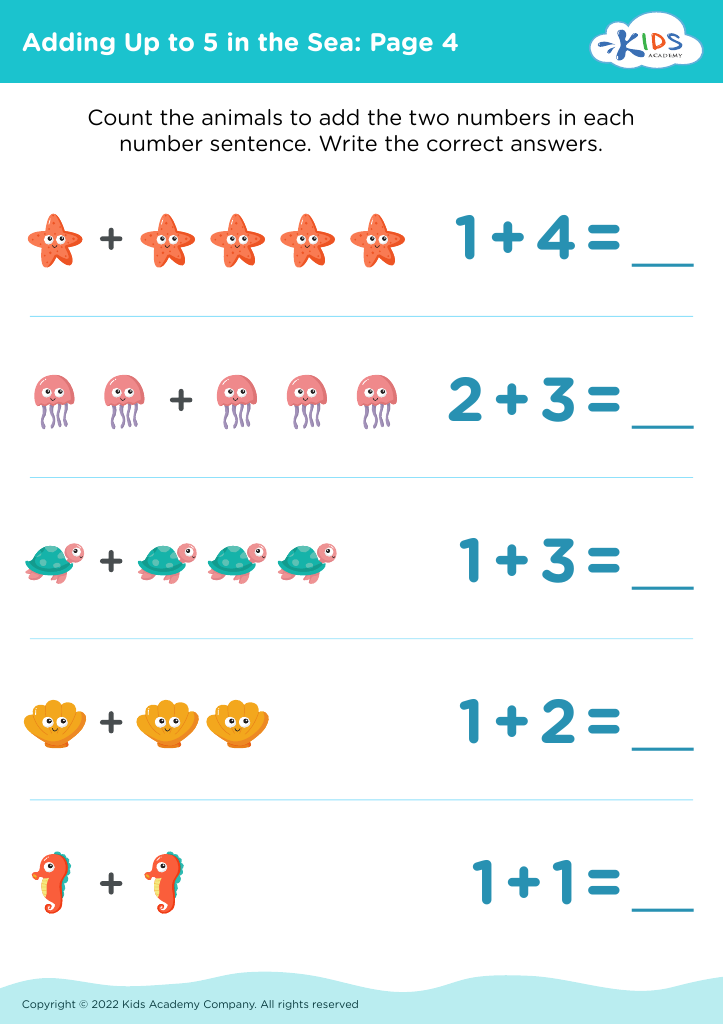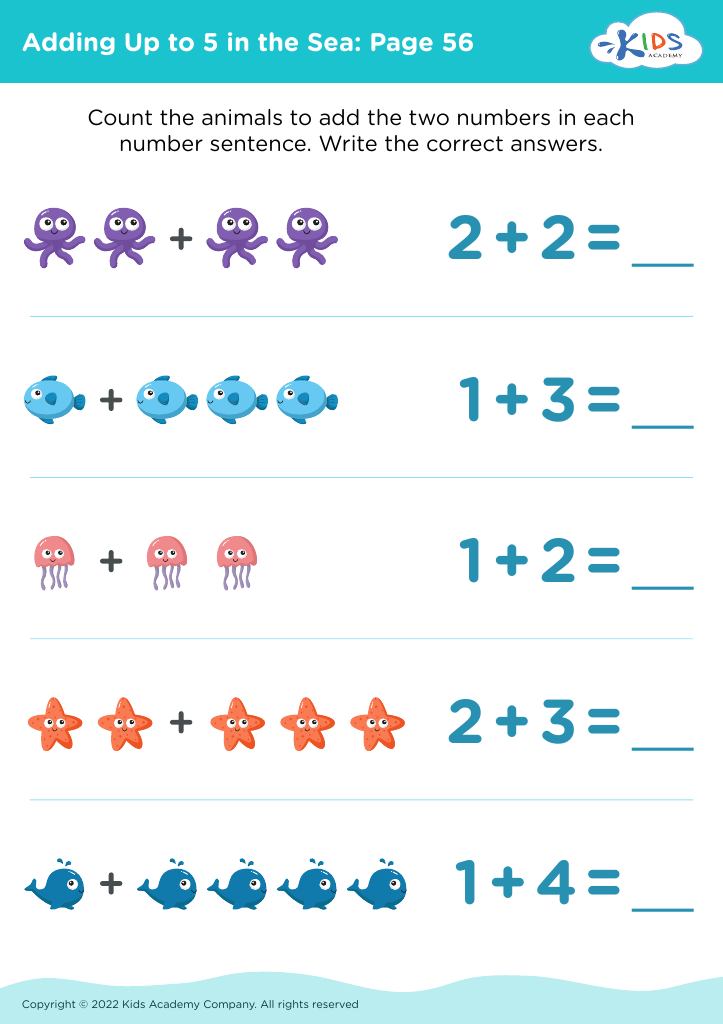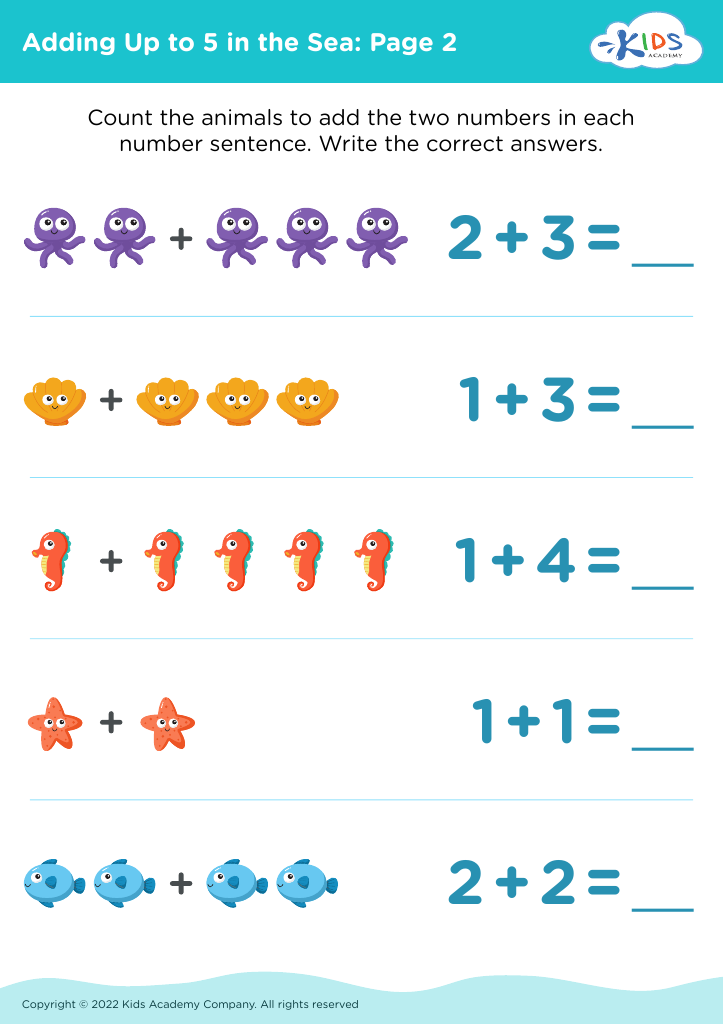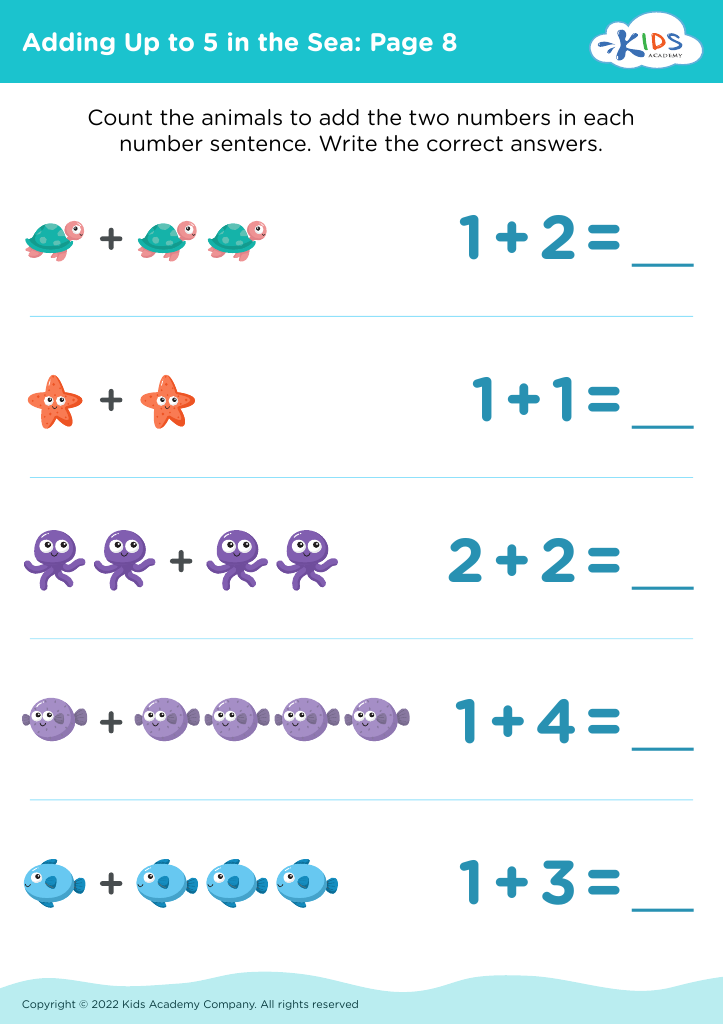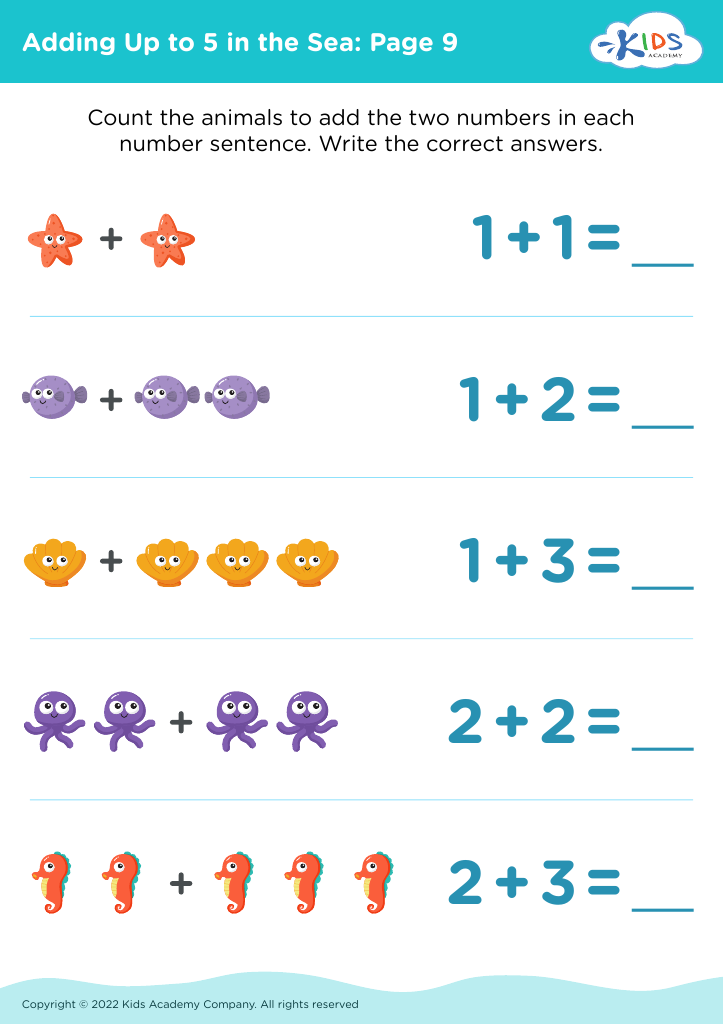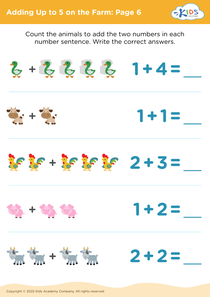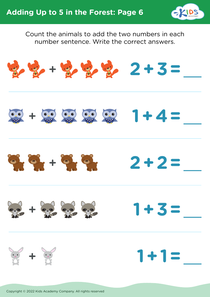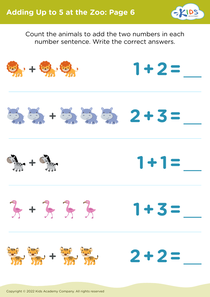Addition skills Adding in the Sea Worksheets for Ages 4-5
15 filtered results
-
From - To
Welcome to our "Addition Skills: Adding in the Sea" worksheets, perfect for children aged 4 to 5! Dive into an underwater world where learning meets fun. These engaging worksheets help young learners master basic addition through colorful sea-themed illustrations, making math enjoyable and relatable. With a variety of activities designed to strengthen counting and addition skills, kids will solve problems involving charming marine creatures while enhancing their numerical understanding. Ideal for parents and educators, these worksheets are perfect for at-home practice or classroom activities, fostering a joyful learning experience. Let's embark on an exciting math journey in the sea!
Addition skills are foundational in early mathematics education, especially for children aged 4-5. Understanding addition helps students develop critical problem-solving abilities, logical reasoning, and number sense, all of which are essential for later academic success. "Adding in the Sea," as a playful theme, engages young learners by connecting mathematical concepts to imaginative scenarios like oceans, sea creatures, or underwater adventures. This approach captures their attention, making learning enjoyable and memorable.
Moreover, addition is not just an abstract concept but a skill used in everyday contexts, such as sharing snacks, counting toys, or gauging time while playing. By establishing a strong grasp of addition early on, children pave the way for more complex mathematical operations in the future, such as subtraction and even multiplication.
Parents and teachers play a vital role in this developmental stage. They can create a nurturing environment where children feel comfortable exploring math through games and interactive activities. Reinforcing positive attitudes toward math will build confidence and reduce math anxiety later in life. Ultimately, supporting young learners in mastering addition skills ensures they are equipped for future academic challenges and empowered as thinkers in an increasingly analytical world.
